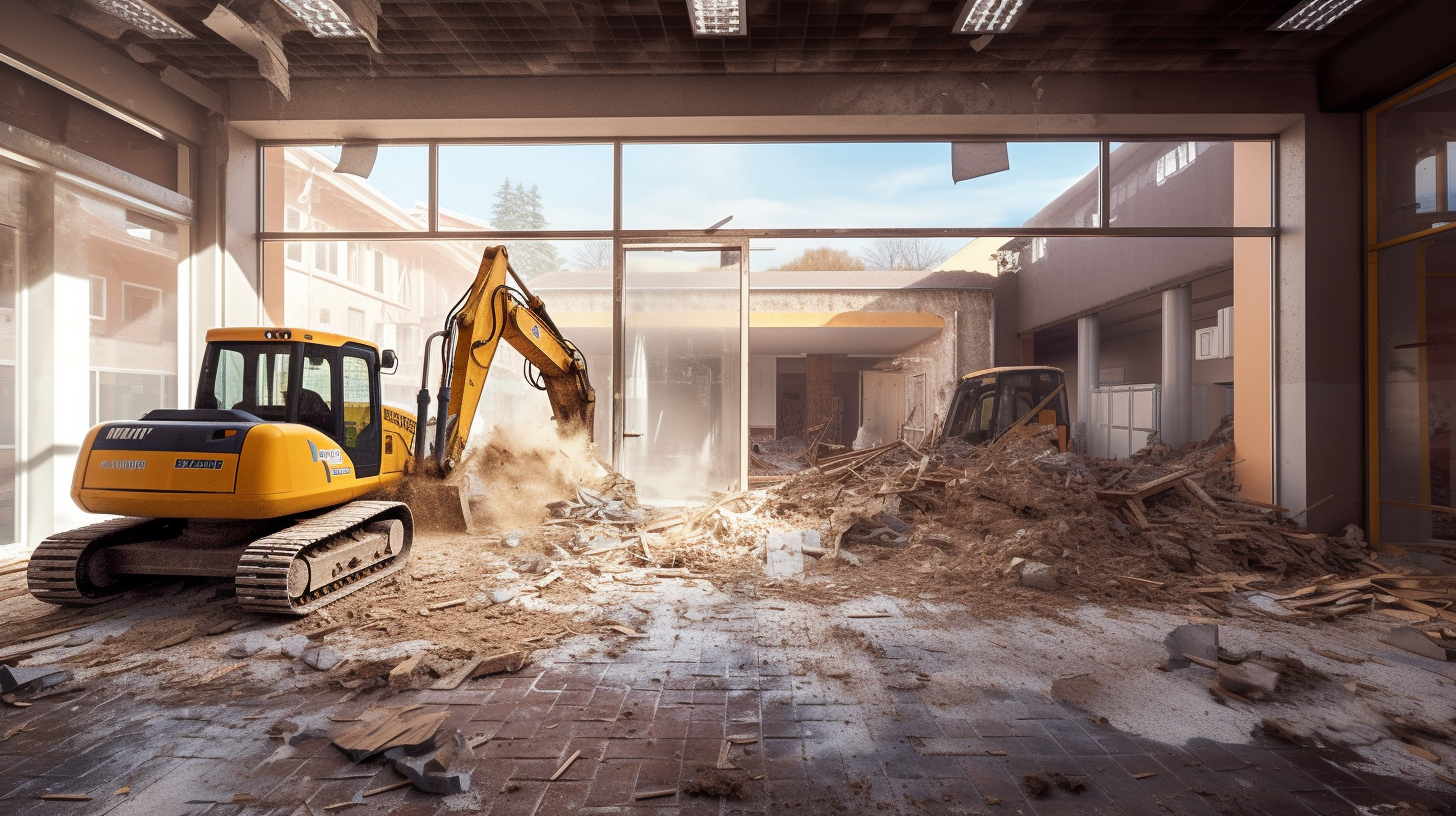
Maintaining the functionality and aesthetic appeal of commercial properties is essential for business success. A clean, well-maintained environment not only enhances the professional image of a property but also ensures its operational efficiency and safety. Debris removal plays a pivotal role in achieving these goals by preventing potential hazards, improving curb appeal, and supporting a healthy, productive environment for employees and visitors alike. This essential practice extends beyond mere cleanliness, serving as a cornerstone of property management that upholds the value and reputation of commercial spaces. By addressing debris promptly and effectively, property managers can foster an inviting atmosphere that reflects the highest standards of care and professionalism.
Types of Debris Commonly Found in Commercial Properties
Office and Business Waste
Commercial properties often accumulate office and business waste, including paper, outdated furniture, unused electronics, and office equipment. These items can clutter spaces and impact productivity. Managing such waste comes with unique challenges, particularly when dealing with e-waste like old computers and printers. These materials require proper recycling to ensure environmental safety. Additionally, bulky items like furniture demand logistical planning for efficient removal and disposal.
Construction and Renovation Debris
During upgrades or renovations, commercial properties generate significant construction debris, such as concrete, drywall, tiles, and wood. These materials are often bulky and heavy, posing challenges in both handling and transport. Some items, like treated wood or construction adhesives, may also be classified as hazardous waste, necessitating specialized disposal methods to meet regulatory compliance and protect the environment.
Outdoor and Landscaping Debris
Outdoor and landscaping maintenance can lead to the accumulation of debris such as tree branches, excess soil, and seasonal waste like fallen leaves or snow remnants. These materials may not seem problematic initially but can quickly pile up, affecting the property’s curb appeal and safety. The ongoing nature of landscaping tasks requires consistent debris removal to ensure the exterior of the property remains welcoming and professional.
Industrial and Hazardous Waste
Industrial facilities within commercial properties may produce hazardous waste, including chemicals, oils, and manufacturing byproducts. These types of debris present significant challenges due to their potential risks to health and the environment. Safe handling and disposal are critical, requiring strict adherence to safety protocols and environmental regulations. Improper management can lead to legal consequences and damage the property’s reputation.
Methods of Debris Removal for Commercial Properties
On-Site Sorting and Categorization
Effective debris removal begins with on-site sorting and categorization, where materials are separated into recyclable, reusable, and disposable groups. This method helps streamline the disposal process, ensuring that valuable materials are diverted from landfills and sent to recycling facilities. By adopting this approach, commercial property managers can improve recycling rates, reduce waste disposal costs, and contribute to environmental sustainability. Clear labeling and designated sorting areas can further simplify this process, making it easier for employees or contractors to participate.
Dumpster Rentals
For large-scale cleanup projects, such as construction, renovations, or events, dumpster rentals offer an efficient solution. These containers are available in various sizes to accommodate different debris volumes, from light office waste to heavy construction materials. Choosing the right size dumpster is critical to avoid unnecessary costs and logistical challenges. Property managers should also familiarize themselves with rental terms, including weight limits and prohibited materials, to ensure compliance and avoid penalties.
Scheduled Waste Pickup Services
For regular waste and debris removal, scheduled pickup services provide a convenient and reliable option. Weekly or biweekly pickups are particularly beneficial for offices, retail spaces, and other properties with consistent waste output. These services help maintain a clean and organized environment without the need for frequent, large-scale cleanups. Partnering with a dependable waste management company ensures timely pickups and reduces the risk of overflowing bins or unsightly waste accumulation.
Professional Cleanup Teams
When handling extensive debris removal, such as after major construction projects or natural disasters, professional cleanup teams offer a comprehensive solution. These experts are equipped with the tools and expertise to safely manage large volumes of waste, including hazardous materials. Their experience ensures efficient cleanup while minimizing risks to health and safety. Hiring professionals also saves time and allows property managers to focus on other critical tasks.
Specialized Services for Hazardous Waste
Managing hazardous waste requires specialized services to ensure compliance with safety and environmental regulations. Certified disposal companies handle regulated materials, such as chemicals or industrial byproducts, with proper containment and transport protocols. Partnering with these experts reduces liability and ensures that hazardous waste is treated or disposed of according to legal requirements. This is an essential step in protecting both the environment and the reputation of the commercial property.
Eco-Friendly Practices in Commercial Debris Removal
Recycling Programs
Implementing robust recycling programs is a cornerstone of eco-friendly debris removal for commercial properties. Setting up clearly labeled recycling stations for materials like paper, plastics, and metals ensures that these items are properly sorted and diverted from landfills. Partnering with reputable recycling companies for bulk pickups further enhances efficiency and guarantees that recyclable materials are processed responsibly. Such programs not only reduce environmental impact but also align the property with sustainable business practices.
Donating Usable Items
Many items classified as debris, such as furniture, electronics, and office equipment, may still hold value. Donating these usable items to charities, schools, or community organizations provides a second life for them while reducing waste. This practice not only minimizes landfill contributions but also fosters goodwill by supporting local communities. Coordinating with nonprofits or donation centers ensures that the process is seamless and impactful.
Composting Organic Debris
For properties with landscaping needs, composting offers an excellent way to manage organic debris like leaves, grass clippings, and tree branches. Composting transforms this waste into nutrient-rich soil amendments, which can be reused on-site for gardening or landscaping purposes. Integrating composting into regular maintenance routines is a simple yet effective way to promote sustainability while reducing disposal costs. Providing designated compost bins and educating staff about composting best practices can further streamline this initiative.
Sustainable Waste Management Policies
Establishing sustainable waste management policies encourages eco-friendly practices across the property. This includes educating employees and tenants about waste reduction strategies, such as reusing materials and minimizing single-use items. Tracking and reporting waste reduction achievements not only highlight progress but also reinforce commitment to sustainability. By fostering a culture of environmental responsibility, commercial properties can enhance their reputation as leaders in sustainable business operations.
Safety and Compliance in Commercial Debris Removal
Understanding Local Regulations
Compliance with local regulations is a critical aspect of commercial debris removal. Each jurisdiction may have specific laws and restrictions governing the disposal of different types of waste, including recyclable materials and hazardous substances. Familiarity with these regulations ensures that property managers avoid penalties for improper handling or illegal dumping, which can result in hefty fines and reputational damage. Staying updated on waste management laws and consulting with local authorities or waste management companies can help navigate these requirements effectively.
Protecting Workers During Cleanup
Ensuring the safety of workers involved in debris removal is paramount. Proper training on debris handling techniques, equipment operation, and the identification of potential hazards can significantly reduce the risk of accidents. Providing workers with personal protective equipment (PPE) such as gloves, goggles, and safety vests further enhances their safety during cleanup activities. Establishing clear protocols for lifting heavy items and managing sharp or dangerous materials minimizes injury risks and promotes a safer work environment.
Handling Hazardous Materials Safely
Managing hazardous materials requires meticulous attention to safety protocols and compliance. Identifying hazardous waste, such as chemicals, oils, or other regulated substances, is the first step in ensuring proper handling. Using appropriate containment methods and labeling hazardous materials reduces the risk of leaks or contamination. Hiring licensed professionals for the disposal of regulated materials ensures compliance with environmental and safety regulations, protecting both workers and the broader community from potential harm.
Cost Considerations for Commercial Debris Removal
Budgeting for Regular Maintenance
Developing a budget for regular debris removal is essential for maintaining a clean and functional commercial property. Estimating the costs of weekly pickups or contracted waste management services allows property managers to allocate resources effectively. It’s also important to account for seasonal fluctuations, such as increased landscaping debris during fall or higher waste volumes during peak business periods. Proactive budgeting ensures consistent debris removal without unexpected financial strain.
Evaluating One-Time vs. Ongoing Services
When planning for debris removal, property managers must weigh the costs of one-time cleanup services against ongoing waste management contracts. Recurring pickups often prove more cost-effective for properties that generate steady waste, such as office buildings or retail spaces. Conversely, event-based cleanups may suit properties undergoing renovations or hosting infrequent events. Long-term contracts with reliable waste management providers can also offer discounted rates and improved service continuity, making them a practical choice for many commercial properties.
Reducing Costs Through Sustainable Practices
Incorporating sustainable practices into debris removal can significantly reduce overall costs. Recycling materials like metal, paper, and plastics minimizes landfill fees, while repurposing items can reduce the need for new purchases. Additionally, tax deductions for donating usable items such as furniture or electronics provide financial incentives for eco-friendly initiatives. By prioritizing sustainability, commercial properties not only cut costs but also enhance their environmental impact and public image.
FAQs
Contact Bull City Crawlspace Today!
Bull City Crawlspace will do everything we can to ensure your experience with us is excellent.
Request A FREE Estimate
Request a Free Estimate Form
Checkout Recent Post
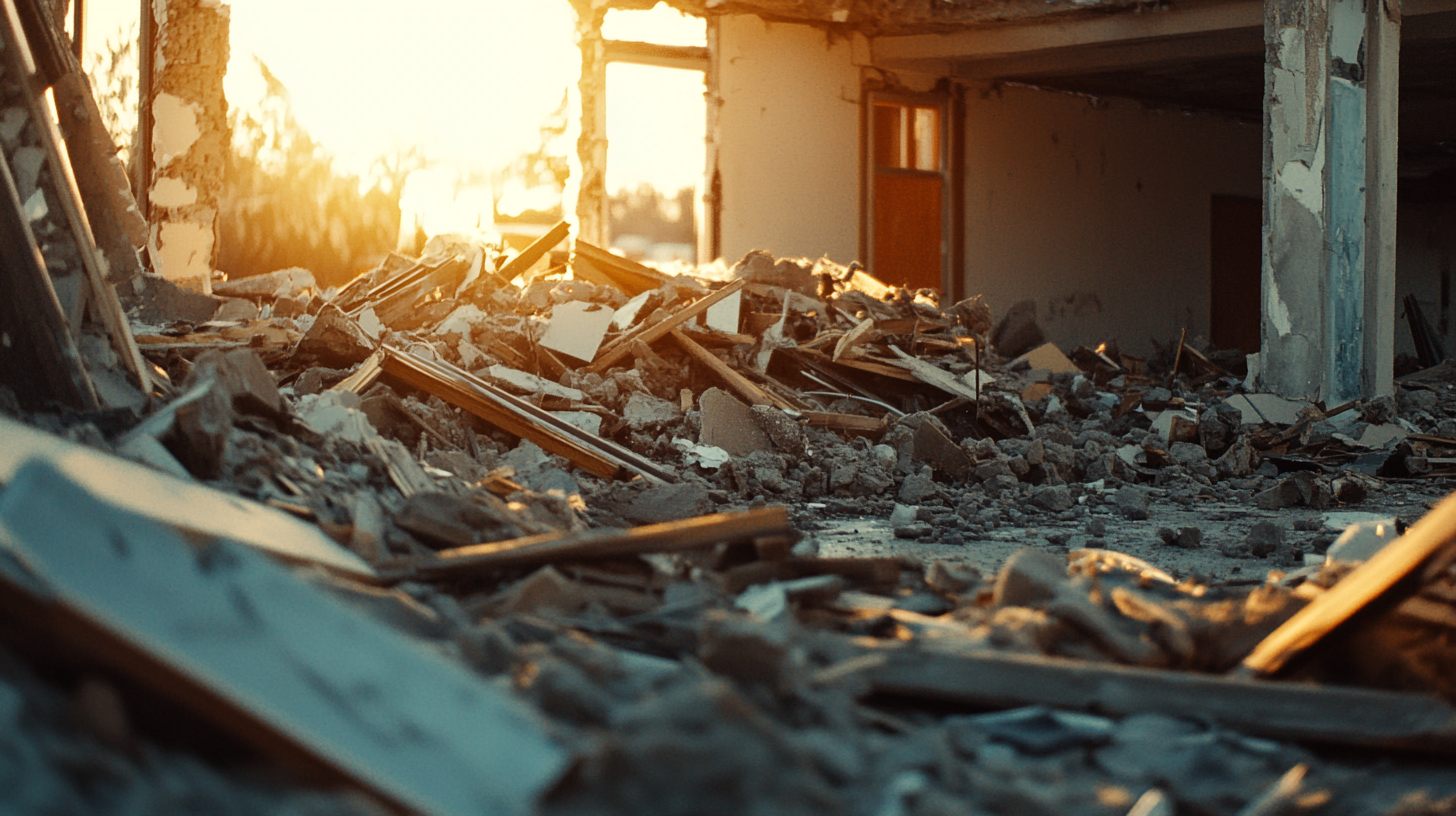
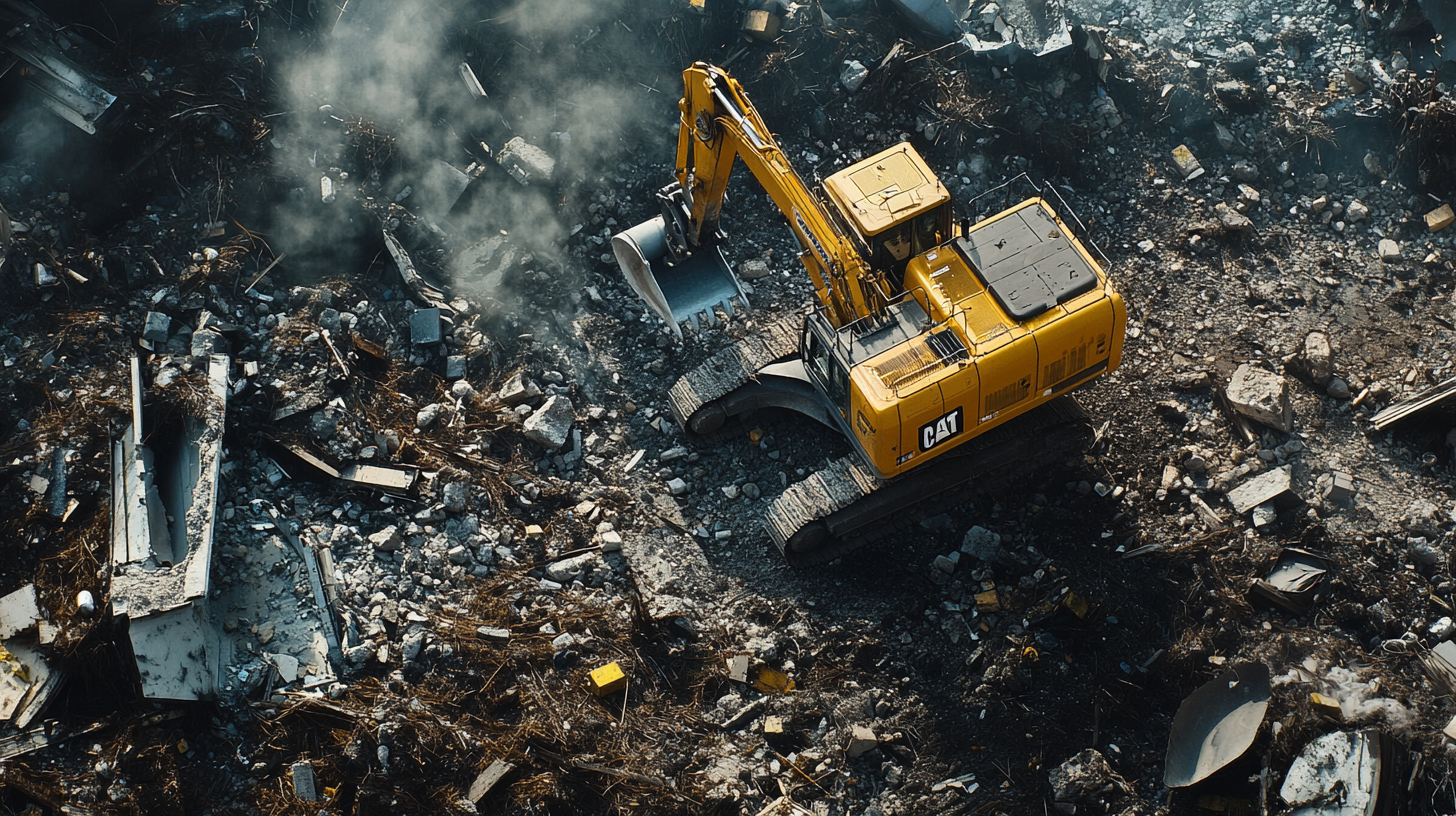
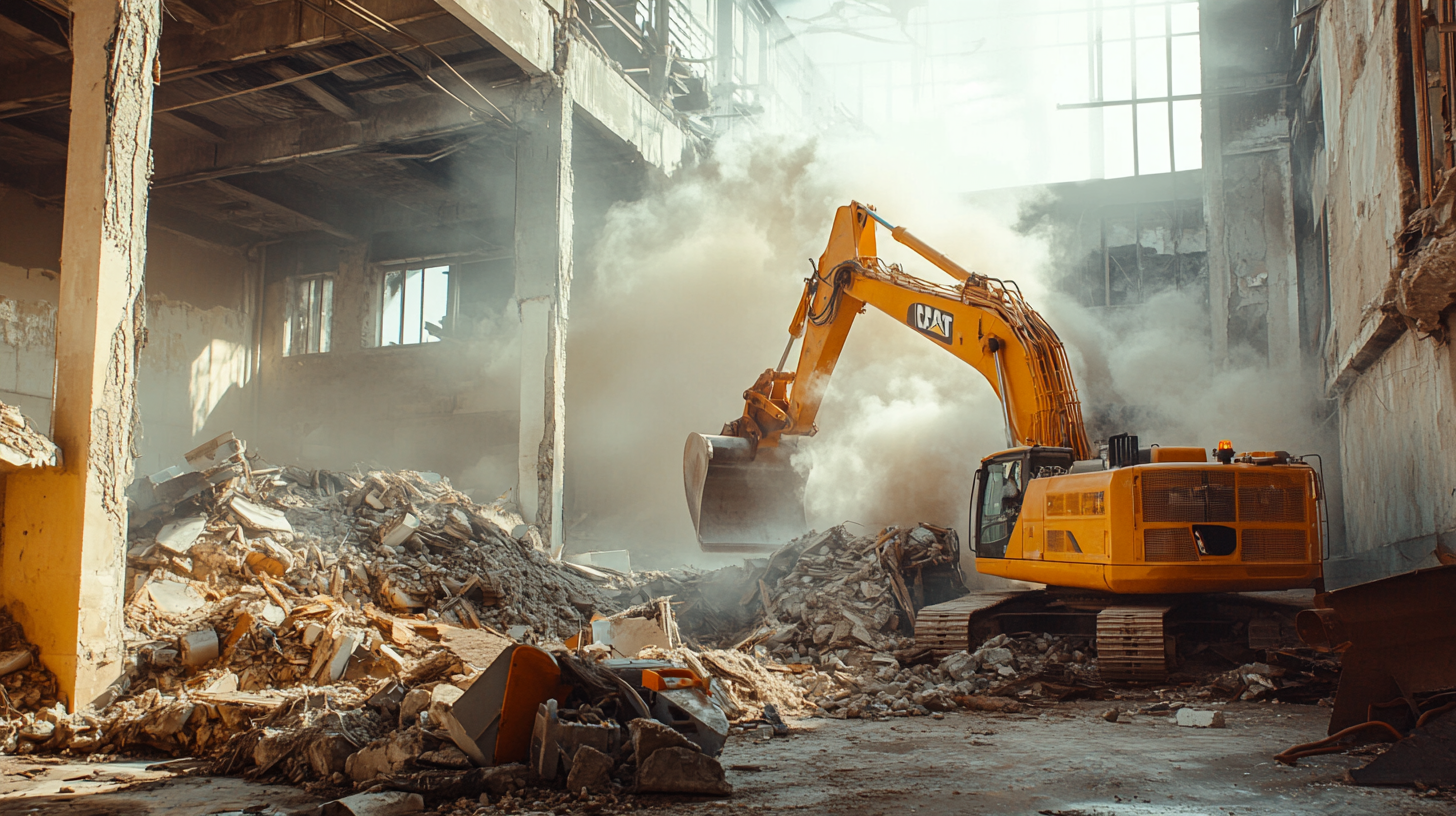
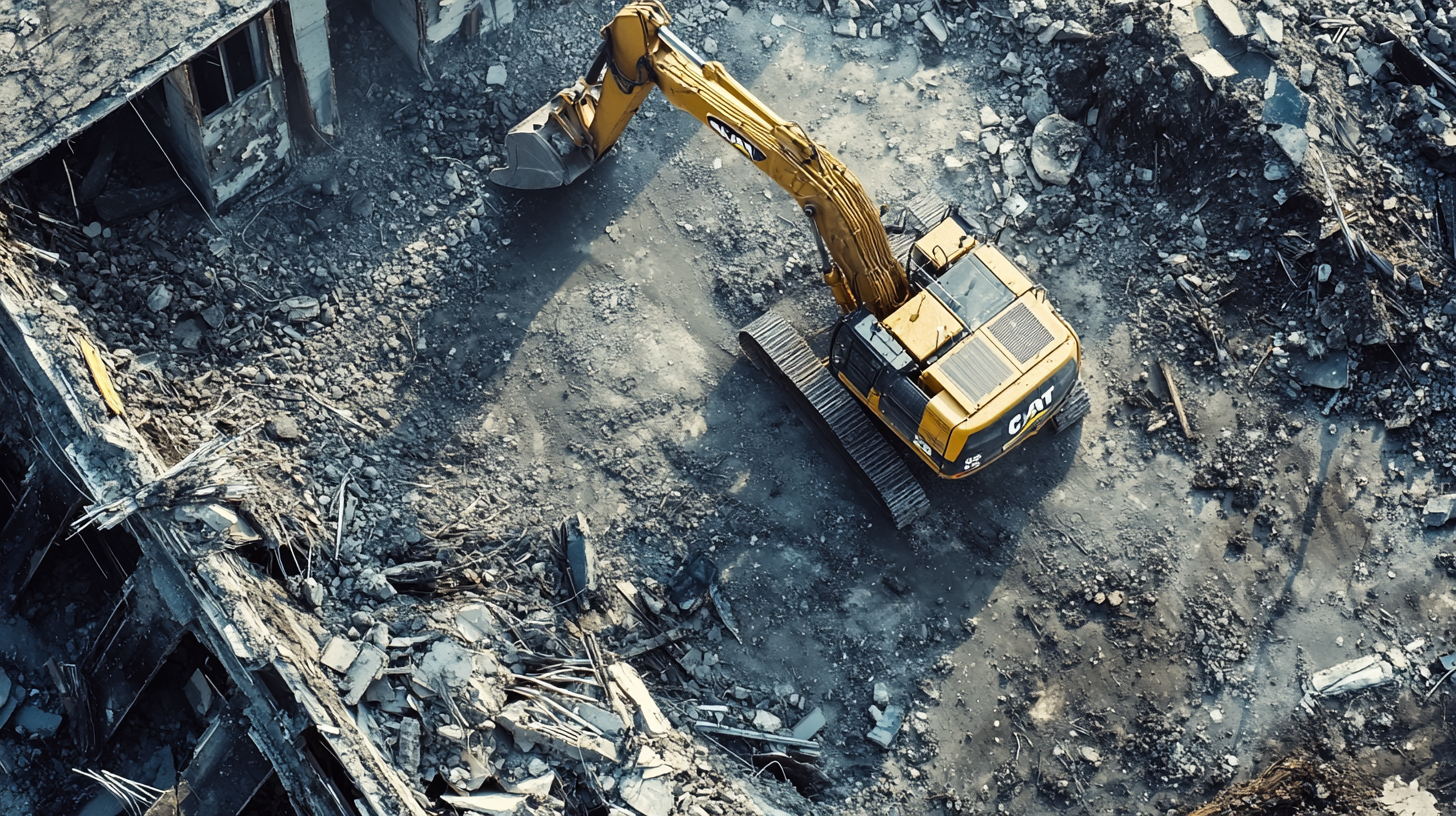
Got a Question? We’re Here to Help.
You can arrange an appointment or make an enquiry by phone or email, orget in touch to us via our contact form.

